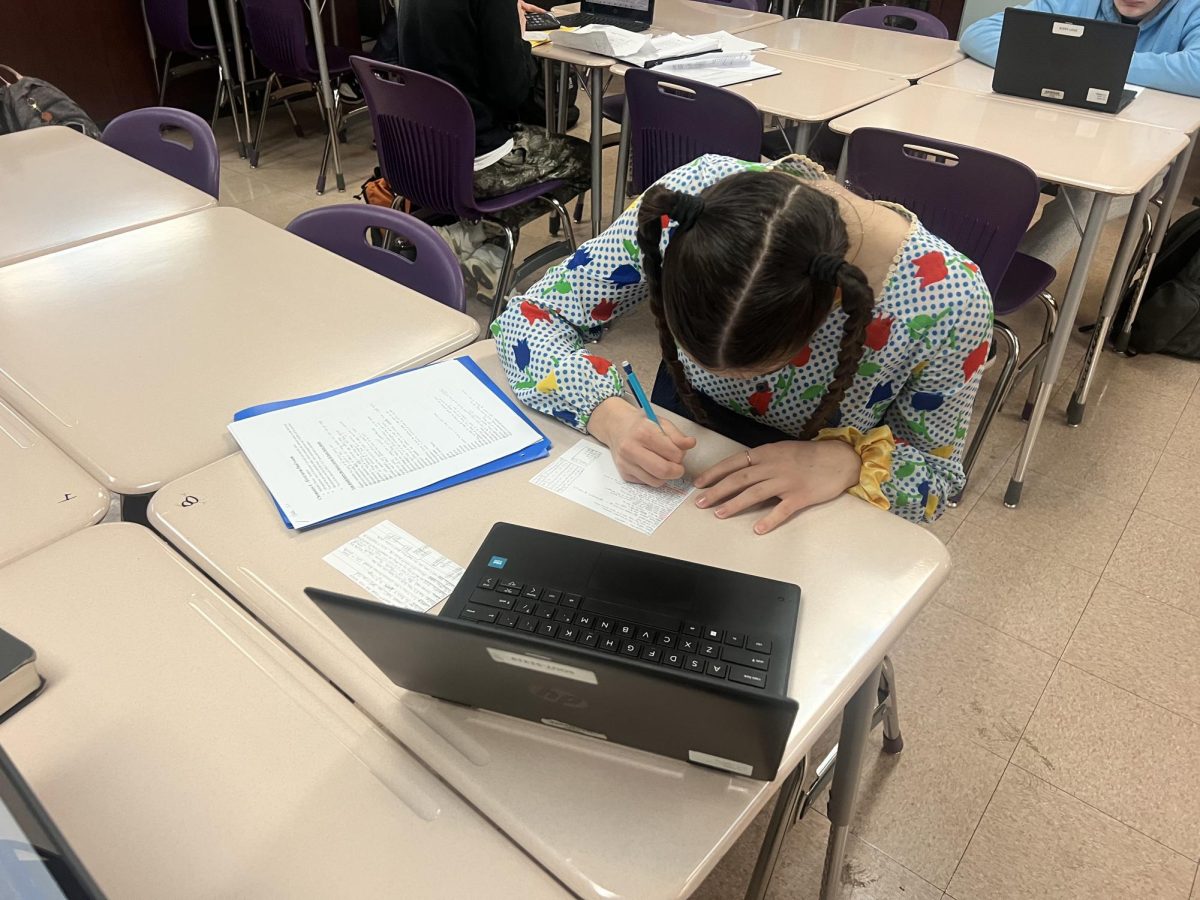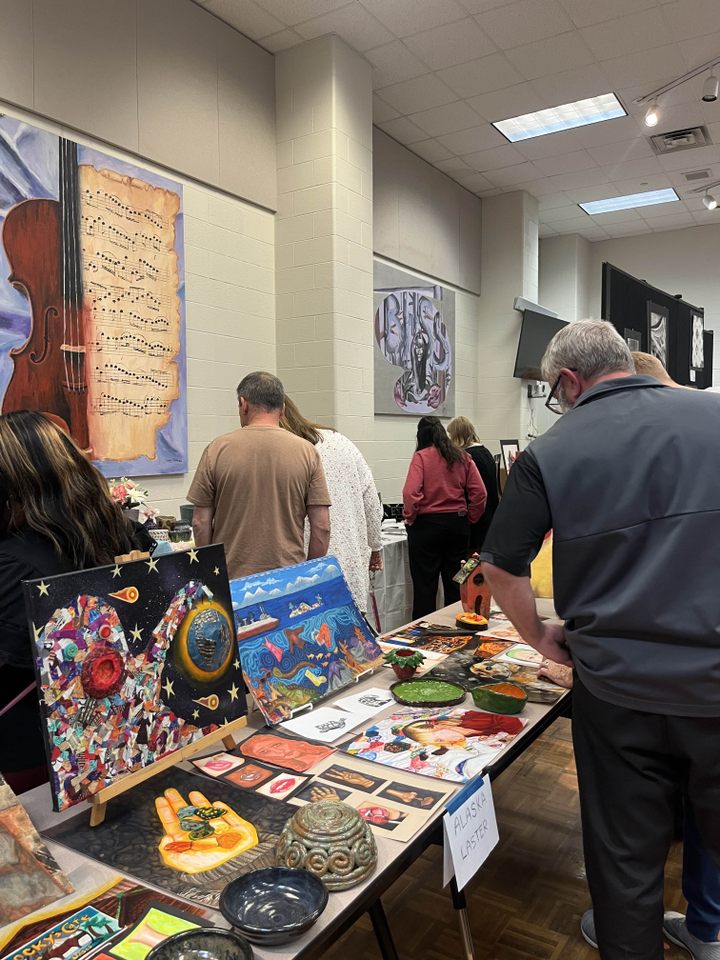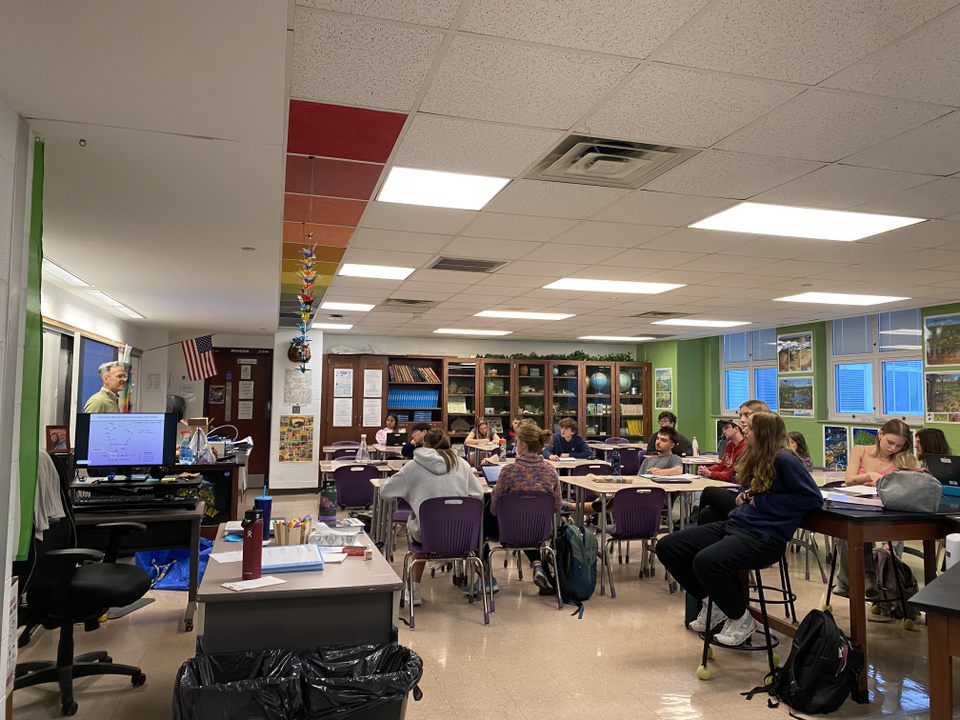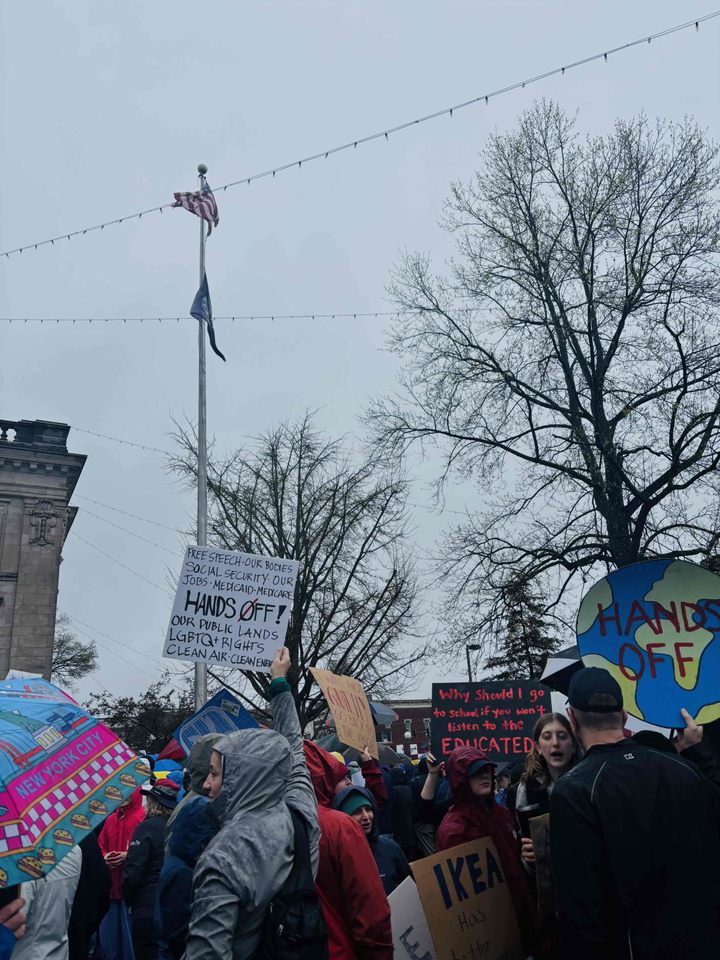Standing shoulder to shoulder with complete strangers while shoveling dishes that range from pungent liver and onions to chicken and noodle soup into bags may not be every teenagers ideal Friday night; however, it’s how I’ve spent most of mine for the past three years. I have dedicated myself to the Hoosier Hills Food Bank and aided it in many of its endeavor, including food recovery and rescue. Each Friday, I preserved food donated from restaurants, schools and churches by repackaging, labeling and freezing it in order to provide for those in need of a meal. I urge all students who are not yet involved in volunteering to take a chance and make an effort to benefit their community.
By volunteering one is able to gain a sense of purpose and fulfillment. Volunteers also benefit from the pure and gratifying sense of happiness that comes from helping others. Not to mention, volunteering looks great on college or job applications.
Through my work with the food bank I have learned that food is an incredibly essential, and often scarce, resource for so many individuals but is often treated as an expendable good. Uneaten food accounts for most municipal waste in landfills and produces large quantities of methane as it decays. As millions of tons of food rot annually in the United States, nearly 50 million Americans remain food insecure and thousands are fated to starve. Food recovery has the potential to reduce solid waste, curb methane emissions and most importantly, save lives. By expanding food recovery and rescue initiatives throughout the United States and implementing more worldwide, it would be possible to dramatically reduce the number of occurrences of malnutrition and starvation.
Whether students choose to work with the homeless, animals, or liver and onions, every minute spent volunteering makes an impact and is extremely beneficial to the community as well as the volunteers.




